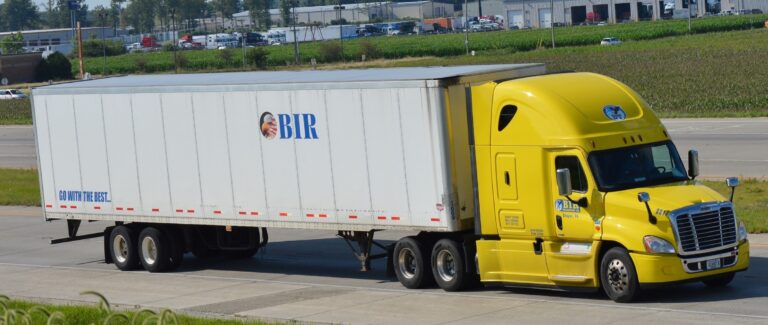Transportation in Tennessee: A Deep Dive into Infrastructure, Trends, and Solutions.

Strong 8k brings an ultra-HD IPTV experience to your living room and your pocket.
Tennessee's transportation network is an intricate system of highways, airports, railroads, and waterways that facilitate the state's prosperous economy and expanding population. As the Volunteer State continues to grow, knowledge of its transportation infrastructure, trends, and innovative solutions is essential for residents and businesses.
Infrastructure Overview
- Highway System: Tennessee has a vast highway system with more than 96,000 miles of roads, of which 1,201 miles are interstate highways. The state has 14,462 miles of highways, including 20,034 bridges, of which 8,443 are state-owned bridges.
- Airport System: The state has six commercial airports and 71 general aviation airports, offering vital connectivity for passenger and cargo transportation.
- Rail System: 19 short-line railroads and six Class I rail lines make up Tennessee's rail system, and Memphis is the nation's third-largest freight rail center.
- Waterways: The state possesses 976 miles of commercially navigable waterways, allowing for major cargo transport.
Trends in Transportation
- Population Growth and Infrastructure Requirements: Tennessee's high population growth rate has created higher demand for transportation. The state is making investments in infrastructure improvement to address these needs, such as a $15 billion, 10-year investment plan to fix roads and bridges.
- Technological Innovations: Tennessee is adopting smart transportation innovations, like the TDOT SmartWay system, which utilizes cameras and dynamic message signs to control traffic and decrease congestion.
- Sustainability and Multimodal Choices: Sustainable transportation patterns and multimodal alternatives, such as public transportation and pedestrian infrastructure, are given increased focus these days. This change strives to enhance mobility, safety, and quality of life for Tennesseans.
Challenges in Transportation
- Funding Constraints: Although there have been recent investments, Tennessee has a serious funding problem for its transportation infrastructure. The state of Tennessee spends less per capita on transportation than any other state except one, and it needs additional revenue sources to stay up with growth.
- Congestion and Safety: Higher traffic volumes have created concerns about safety and congestion. Programs such as the TDOT HELP program seek to enhance motorist safety and response times.
- Environmental Pressures: The transportation industry is under pressure to become more sustainable. Trucking firms in Tennessee are required to navigate these pressures while ensuring operational efficiency.
Spotlight on Trucking Companies in Tennessee
Truck companies in Tennessee are an integral part of the state's economy, offering services for the transportation of goods from one part of the country to another. These companies have issues like increasing costs, changes in regulations, and the necessity to upgrade technology. They also have the potential to innovate and grow their services and help Tennessee grow as a transport hub.
Augusta Transportation Services: A Regional Perspective
Augusta transportation services are crucial to the linking of local communities and the promotion of regional trade. Being part of the overall transportation infrastructure in Tennessee, these services gain from state-level efforts towards enhancing infrastructure and promoting safety. Through the support of local transportation demands, Augusta transportation services play a role in regional economic development.
Trucking Parking Near Me: Meeting Driver Needs
Reliable parking is a source of concern for truckers. "Trucking parking near me" speaks volumes about the necessity of readily available and safe parking facilities on highways. Tennessee's transportation infrastructure must be developed with these needs in mind to facilitate the trucking industry and provide safety to drivers.
Solutions for the Future
- Infrastructure Investments: Tennessee's 10-year infrastructure plan is an important step toward meeting the state's transportation needs. This plan incorporates both annual work program expenditures and a $3 billion appropriation from the Transportation Modernization Act.
- Multimodal Transportation: Investment in multimodal modes, including public transportation and pedestrian facilities, can enhance mobility and quality of life for Tennesseans.
- Technological Innovations: Adopting intelligent transportation technologies and green practices will be essential for Tennessee's future of transportation, making it more efficient and environmentally friendly.
Conclusion
Tennessee's transportation system stands at the crossroads with opportunities and challenges in the near future. Investing in infrastructure, adopting technological innovations, and placing emphasis on multimodal transportation means, the state can develop a safer, more efficient, and more sustainable transport system for years to come.
Note: IndiBlogHub features both user-submitted and editorial content. We do not verify third-party contributions. Read our Disclaimer and Privacy Policyfor details.


